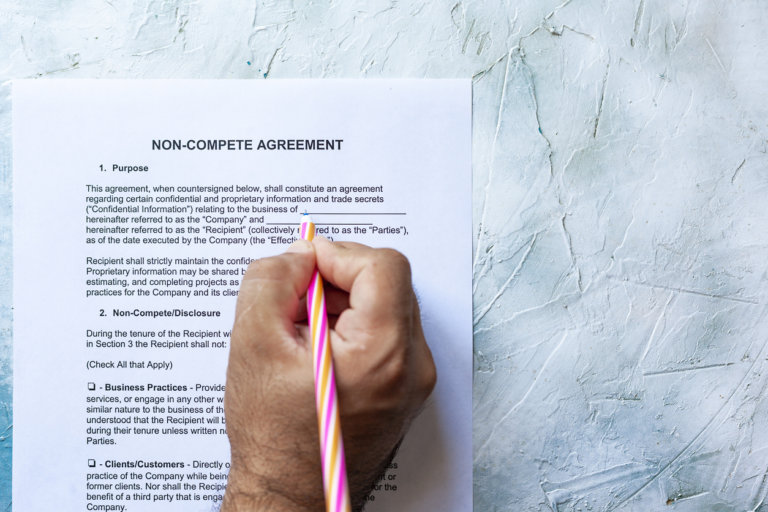
While you may find yourself signing many agreements regarding your conduct and expectations while you work for your employer, many times you will also be asked to sign an agreement regarding your conduct and expectations after you’ve left your employer. This contractual agreement is called a non-compete clause or a restrictive covenant. A non-compete agreement is generally between an employer and employee, given to the latter to sign in order to prevent him or her from partaking in competitive employment after they have left.
In other words, a non-compete agreement oversees that an employee does not leverage trade secrets, business practices, and other information in order to start their own business in competition with the first business or in seeking new employment. However, this is not to say that only those who share trade secrets issue non-compete agreements to employees; you can still be asked to sign such an agreement regardless of how much information has been shared with you.
Violating a Non-Compete Agreement
Those who fail to adhere to a non-compete agreement that they have signed can face legal ramifications. Yet, it is not enough to sign a non-compete agreement for it to be valid. In order for a non-compete agreement to hold up in court and be enforceable, it must pass a test. Non-compete agreements in Virginia are legally enforceable if the employer/issuer can prove the following:
- The restriction is only severe enough that it protects the employer’s business interest – it is not excessive;
- The agreement does not serve to be excessively oppressive in terms of restricting the employee’s ability to find new employment; and
- The agreement is not in violation of one of Virginia’s clear mandates regarding public policy.
What Makes a Non-Compete Clause Valid?
In order for a non-compete clause to be legally enforceable in court, the employer has the burden of proving that it is in fact valid. In making its determination, the court looks at multiple factors such as:
- Whether time limitations that the agreement places on the employee are reasonable;
- Whether the geographic limitations that the agreement places on the employee are reasonable; and
- Whether the scope of the limitation exceeds what is necessary in order to protect the employer’s business interest
However, this is not enough either. The employer must also be able to prove that harm has directly resulted from this violation of the agreement. This would be monetary damage. Employers who are able to prove this may be able to recover damages as laid out within the agreement.
It’s also important to note that the courts find some information so important that they will uphold agreements that prevent former employees from disclosing it. This may include information such as consumer lists, technological projects, plans to expand within the market, and specific market shares.
But even if the court invalidates the agreement, the money that you will undoubtedly have to spend to get to that point could be financially debilitating for you regardless.
Surovell Isaacs & Levy PLC Can Help Those Dealing with Non-Compete Agreements and Other Business Issues in VA
Since there is so much at stake, if you have signed or are considering signing a non-compete agreement in Virginia, you should always consult with a knowledgeable and experienced Business Litigation Attorney. Likewise, if a former employee has violated your non-compete agreement you should also seek an attorney consult.
And if you are currently dealing with business issues of any kind, it can be extremely overwhelming and frustrating to know what to do next. The right attorney can make all the difference. At Surovell Isaacs & Levy PLC, we work with our clients to ensure that they get what they deserve. To learn more or to schedule a consultation, contact us today!
Posted in: Business Law
